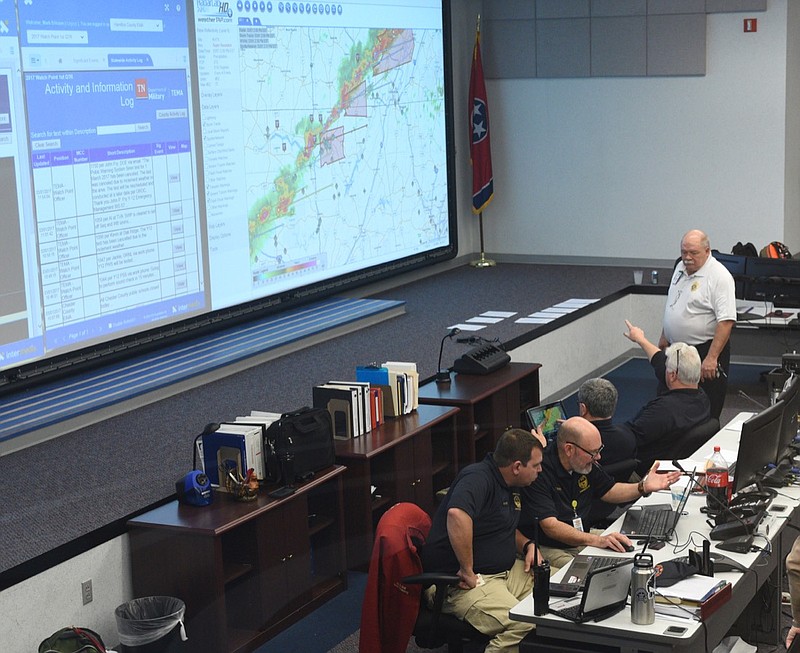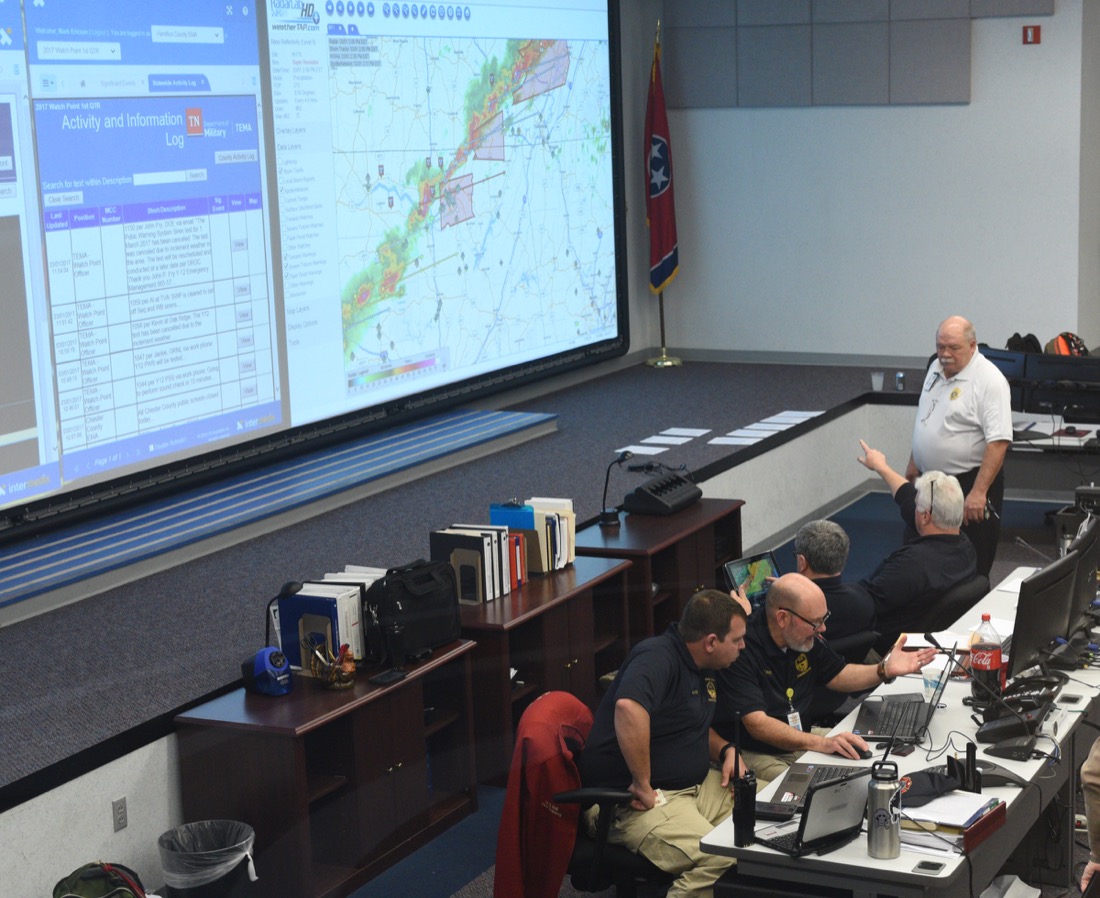NASHVILLE - Tennessee's emergency operations chief says his agency is restructuring its support for counties' planning for natural and man-made disasters in the wake of another state comptroller audit showing some local governments tardy in providing the required updated plans.
But Patrick Sheehan, executive director of the Tennessee Emergency Management Agency, also noted that in a number of instances, smaller, rural counties don't have adequate financial resources or sometimes don't see it as a high priority.
"We have local emergency management agencies in this state that are ... unfortunately underresourced in some places," Sheehan told the Legislature's Government Operations Sunset Joint Subcommittee on Judiciary and Government on Wednesday. "You know, a lot of times one person, in some cases it's a volunteer who's designated here."
The counties' Basic Emergency Operations Plan is expected to demonstrate their preparations for, during and after a disaster hits with details on who or what government agency, business or nonprofit group will be responsible for each aspect.
Sheehan told lawmakers it's difficult for local governments at times to see a return on investment when it comes to emergency preparedness. Unfortunately, he said, it becomes "easier to see where there's a lack of it," pointing to the aftermaths of hurricanes that slammed Puerto Rico in 2017 and New Orleans in 2005 as prime examples.
Sheehan was before the oversight panel after state auditors sampled eight of the 16 or 17 counties in 2018 whose updated plans were due to be submitted to the Tennessee Emergency Management Agency, known as TEMA, in 2018. Sheehan told lawmakers that half of the total counties required to submit provided the updated plans.
But among the eight counties audited, only one county, Cheatham County, submitted its plan, auditors found. During the committee meeting, lawmakers noted that one of the seven counties that didn't, Stewart, had later filed its plan.
The comptroller's office did not list the counties in its audit and later cited secrecy provisions in Tennessee's Open Records Act that treat state and local government auditors' working papers as confidential for not providing them to the Times Free Press.
A list of the counties obtained later shows none from Southeast Tennessee. And a notation on the document also says that none of the counties had had a problem in a prior 2011 audit.
During the hearing, Sen. Mike Bell, R-Riceville, who has worked as a volunteer firefighter, told Sheehan that "a lot of [delays are] probably based on a rural, small county just not going to have the expertise that a Knox, or Shelby or Hamilton County may have in putting one together.
"But this is vitally important, and there's no way that you or even the Legislature can be assured that the plans will meet the need when that need arises unless they are compliant with the state law," Bell said, later adding, "you can just go back the past 10 years and disasters have hit every corner of this state, every county of this state, in one form or another."
Just this spring, Tennessee was struck with floods in many counties.
Sheehan said "we have a plan to execute against this [situation]. I do want to emphasize, though, that all 95 counties do have an emergency plan. There are varying degrees of quality, there are varying degrees of accuracy in those plans. But all counties do have the plans."
He agreed with auditors "that there is an issue here, and we actively have reorganized in order to help provide assistance to get this planning caught up, completed and tracked."
He said the agency is working to make it easier for local governments to plan with software.
The comptroller's office said that, while TEMA is responsible by law for ensuring the plans are done and updated, it has no real enforcement mechanism.
In another finding, the comptroller's office found that TEMA management did not ensure that emergency services coordinators completed all required training courses and found "deficiencies in meeting training requirements for all 60 of 60 [coordinators] tested." That's about a third of all the coordinators.
Under state law, the head of each state executive department and independent agency designates someone as the emergency services coordinator with an alternate.
The coordinator is responsible for coordinating with TEMA and reporting to that agency on emergency preparedness issues, preparing and maintaining emergency preparedness and post-disaster response and recovery plans for their agency, maintaining rosters of personnel to assist in disaster operations and coordinating appropriate training for agency personnel.
Sheehan, who became TEMA's chief three years ago, said part of the issue is large turnover in state departments and agencies through retirements or leadership changes. Moreover, a number of entities involved are federal, nonprofits or private companies, he said.
"The trouble I have is I have no stick with the [non-governmental organizations] and the private sector," Sheehan said, adding TEMA is working "to meet them where they are."
Contact Andy Sher at asher@timesfreepress.com or 615-255-0550. Follow him on Twitter @AndySher1.

